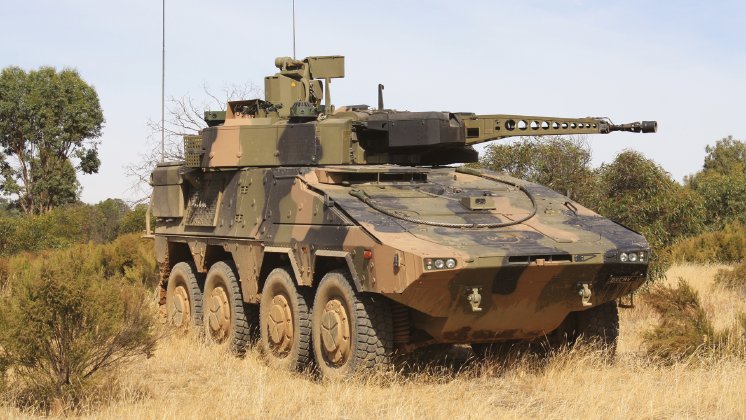- Germany and Australia sign letter of cooperation to start negotiations on export of Australian-made Boxer armoured vehicles to Germany
- MILVEHCOE to contribute significantly to production of over 100 vehicles
- Delivery to start in 2025
- Boxer could be the largest defence export in Australian history
- Combat-ready vehicle with 30mm automatic cannon for direct tactical fire support
The letter of cooperation, signed on 23 March 2023 in Canberra by The Hon Pat Conroy MP, Australian minister for defence industry, and Mr Thomas Hitschler, German parliamentary state secretary in the German minister of defence, will enable the start of formal negotiations between the German and Australian authorities and Rheinmetall to establish appropriate legal and commercial arrangements.
Following successful conclusion of negotiations, the German Boxer vehicles will be built, utilizing production capacity at Rheinmetall’s state-of-the-art Military Vehicle Centre of Excellence (MILVEHCOE) at Redbank in South East Queensland, alongside the Boxer Combat Reconnaissance Vehicles (CRV) being produced for the Australian Defence Force.
The “schwerer Waffenträger Infanterie” (sWaTrInf, for short) is based on the Australian Army’s Boxer CRV. This is a proven 8x8 combat vehicle equipped with a reconnaissance vehicle mission module including the two-man Lance turret. Its main armament is the Rheinmetall MK30-2 ABM automatic cannon, which also features in the German Puma infantry fighting vehicle. In the long term, the German armed forces intend to procure more than 100 Boxer sWaTrInf to replace the current “Wiesel” (weasel) to serve as a direct tactical fire support platform for its infantry units. Delivery is scheduled to begin in 2025.
In speaking of the potential export order, John Abunassar, head of Rheinmetall’s Vehicle Systems division, noted the commonality between the Australian and proposed German Boxer sWaTrInf vehicles, and the trust placed in Rheinmetall by the two allies: “The German Boxers to be built at MILVEHCOE will be modelled on the Australian Boxer Reconnaissance vehicle variant. The opportunity would be one of the largest Australian defence exports in the nation’s history, and support Rheinmetall’s vision to build and grow Australia’s defence industry capability as well as integrating it into the Group's global supply chains.”
“Rheinmetall in Australia has more than 900 staff, high-tech skills and an established production plant that includes vehicles, armour and electronics manufacturing at Redbank”, adds Nathan Poyner, managing director of Rheinmetall Defence Australia. “Our Australian and global supply chain will continue to grow, with small- and medium-sized enterprises benefitting as we secure new orders to complement existing export programmes. We welcome the close partnership between Australia and Germany throughout the land vehicle domain as the two nations work together to increase global security.”
News of the letter of cooperation on the German Boxer Heavy Weapon Carrier proposal follows the start of production of Rheinmetall’s Australian Boxer with the “Striking of the Arc” at MILVEHCOE on Monday, 20 March. There, in the presence of Queensland premier Annastacia Palaszczuk, the symbolic first weld was placed for the Australian-made Boxer CRV.
The Boxer vehicle is an advanced, armoured 8x8 vehicle in service with armies around the globe. The Boxer offers enhanced troop safety, security and protection, coupled with high levels of firepower and mobility for sustained operations ranging from peacekeeping to high-intenstiy combat.
In Australia, Rheinmetall is the largest supplier of military vehicles for the Australia Defence Force. In addition to the 211 Boxer vehicles delivered under the Land 400 Phase 2 project – 133 of which are the CRV variant with the manned Lance turret – the company also services the Australian armed forces' HX fleet, which comprises over 2,900 vehicles. In addition, the company has put forward its Lynx infantry fighting vehicle for the Australian Land 400 Phase 3 project.



